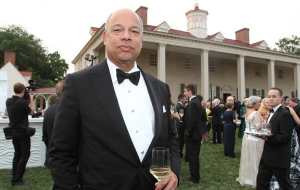Peril: What’s Epilogue to Prologue?
[NB: Check the byline, thanks. /~Rayne]
Guess what book came in the mail last weekend?
PROLOGUE Two days after the January 6, 2021, violent assault on the United States Capitol by supporters of President Donald Trump, General Mark Milley, the nation’s senior military officer and chairman of the Joint Chiefs of Staff, placed an urgent call on a top secret, back-channel line at 7:03 a.m. to his Chinese counterpart, General Li Zuocheng, chief of the Joint Staff of the People’s Liberation Army.Milley knew from extensive reports that Li and the Chinese leadership were stunned and disoriented by the televised images of the unprecedented attack on the American Legislature.
Li fired off questions to Milley. Was the American superpower unstable? Collapsing? What was going on? Was the U.S. military going to do something?
“Things may look unsteady,” Milley said, trying to calm Li, whom he had known for five years. “But that’s the nature of democracy, General Li. We are 100 percent steady. Everything’s fine. But democracy can be sloppy sometimes.”
It took an hour and a half—45 minutes of substance due to the necessary use of interpreters—to try to assure him.
When Milley hung up, he was convinced the situation was grave. Li remained unusually rattled, putting the two nations on the knife-edge of disaster.
That’s the first six paragraphs of the book Peril‘s fucking prologue.
Prologues are typically use to establish a frame or perspective, providing additional exposition for the reader before they enter the main narrative. They’re far more common in fiction than nonfiction.
This isn’t a true prologue. It’s a chapter from an attempted autogolpe told out of chronological sequence to grab the reader’s attention and make them stay with the narrative.
I’ll admit right now I’ve only just cracked the book and I’m juggling it with other reading I’m doing, but Jesus fucking Christ no wonder the media sat up from its moribund position and covered General Milley’s preemptive diplomacy from Peril’s prologue before its commercial release date September 21.
No wonder, too, why the media immediately went on a tear about Milley’s call to China. Peril’s prologue ensured this would happen.
Sadly, I’m juggling more than other reading right now, so I haven’t been able to catch but snippets of the House Armed Services Committee hearings this past week during which some of the substance in Peril was addressed.
~ ~ ~
It’s surprising and yet unsurprising that the media blew up about General Milley’s defense-by-diplomacy immediately following the January 6 insurrection.
First, they bit on the lede with which Costa and Woodward baited them, which means the prologue worked as a hook, but it also reveals a massive hole in reporting following January 6.
Why did the public need to wait until Costa and Woodward published a book NINE MONTHS AFTER the insurrection to learn the Chairman of the Joint Chiefs of Staff was compelled to engage in diplomacy with his Chinese counterpart?
Second, the media was surprised at the level of concern regarding a peaceful transition of power, but not until NINE MONTHS AFTER the insurrection.
Why weren’t they paying attention to the National Task Force on Election Crises five months before the election and seven months before the insurrection, especially after Trump refused to concede the election, called Georgia’s secretary of state to lean on the state to “find the votes” necessary for Trump to win, and after the January 6 insurrection?
And why did so many media outlets ignore or forget that only Congress has the power to declare war, and that any attack on another nation-state without authorization by Congress would be unlawful?
Lastly, why wasn’t Milley’s oath of office — the same oath taken by all members of the military, similar to the oath taken by federal employees and elected officials — taken into consideration by journalists covering Milley’s diplomatic outreach?
I [name], having been appointed an officer in the Army of the United States, as indicated above in the grade of Second Lieutenant, do solemnly swear (or affirm) that I will support and defend the Constitution of the United States against all enemies, foreign and domestic, that I will bear true faith and allegiance to the same; that I take this obligation freely, without any mental reservation or purpose of evasion; and that I will well and faithfully discharge the duties of the office on which I am about to enter, so help me God.
Support and defend the Constitution of the United States.
Against all enemies, foreign and domestic.
So little examination of whether Milley was defending the Constitution and against which enemies.
~ ~ ~
I can’t say I’m fond of Bob Woodward. Some of his work is whitewashing, wallpapering — like Bush At War, which was little more than a massive beat sweetener published to assure ongoing access to the Bush White House.
But therein is the crux of the problem Peril presents us: access journalism has failed and continues to fail us.
There’s an article in The New York Times today which focuses on questionable conservative attorney John Eastman whose role in drafting the plan to overthrow the 2020 election was disclosed and thinly outlined in Peril.
Why after all of the NYT’s access reporting during the Trump administration did we have to hear about Eastman from Woodward and Costa and not from the NYT?
Most especially Maggie Haberman who shares the byline on today’s article with Michael Schmidt — why is she covering Eastman now after a book relying on access journalism was published by other journalists?
Was Haberman’s access journalism even worse than believed?
This graf from today’s NYT article just sets my teeth to grinding:
Then, after the November election, Mr. Eastman wrote the memo for which he is now best known, laying out steps that vice president Mike Pence could take to keep Mr. Trump in power — measures Democrats and anti-Trump Republicans have likened to a blueprint for a coup.
Wow, how did Eastman become “best known” for that How-to-Coup memo?
In a two-page memo written by Mr. Eastman that had been circulated to the White House in the days before the certification — revealed in the new book “Peril” by the Washington Post reporters Bob Woodward and Robert Costa — Mr. Eastman said that Mr. Pence as vice president was “the ultimate arbiter” of the election, essentially saying he had the power to determine who won, and that “we should take all of our actions with that in mind.”
Oh. Huh.
~ ~ ~
There are a couple pod casts worth listening to which cover some of the topics addressed in Peril.
With Bob Woodward, Bob Costa (@costareports) has written “Peril,” which concentrates on the final days of the Trump presidency. In a podcast, Costa and I talk about some big issues and big personalities. All of this is very important — and not over. https://t.co/8w0xoYrks4?amp=1
While some of the content of this conversation between Nordlinger and Costa appears in Peril, it’s not as obvious as having the author tell you about the subject matter.
It was a pleasure to speak with @Popehat. Thanks for having me on All the Presidents’ Lawyers, Ken!
Here’s the episode, where we talk about 4 lawyers who lost their minds while trying to overturn the 2020 election result for Trump. https://t.co/xSQGXXPu1G?amp=1
Above The Law blog founder David Lat was the featured guest on KCRW’s All the Presidents’ Lawyers podcast hosted by Ken White (a.k.a. Popehat). While the topic is “Trump Derangement Syndrome” covering four lawyers who appear to have gone off the deep end in the service of Donald Trump, one of the lawyers discussed is John Eastman.
Of particular note: the exchange beginning about 9:00 minute mark into the 33:14 program in regards to the Brandenburg standard for incitement of violence.
It’s also worth following the Twitter account of Peril’s author Bob Costa (@costareports); he tweets more about the content and background of Peril as well as new related reporting.
As we worked on PERIL, it became evident that Jan. 6 was not a sporadic moment, as some have tried to cast it. Our reporting shows it was the culmination of a coordinated pressure campaign. Giuliani & Bannon at the Willard. Eastman & Trump in Oval, etc. https://t.co/z62p3OMVdY?amp=1
This tweet is particularly important: the insurrection isn’t over. It’s ongoing until the conspirators are stopped — all of them.
It’s this challenge which really makes me angry about Peril and its questionable prologue: the focus became Milley who was one of a few people who prevented January 6th’s aftermath from being so much worse.
The real focus should be that U.S. democracy remains under steady attack with the January 6 insurrection potentially the Krystallnacht which organizes American fascists.
~ ~ ~
I may post more as I continue reading Peril.
If you’re reading Peril as well, feel free to share your takes in comments below.


 CC BY 2.0
CC BY 2.0
